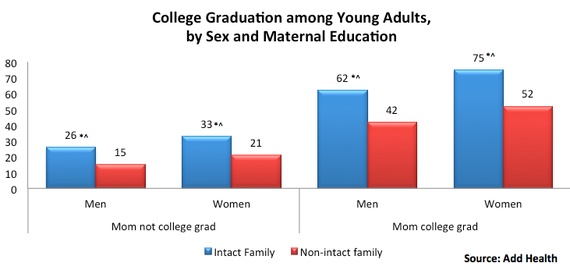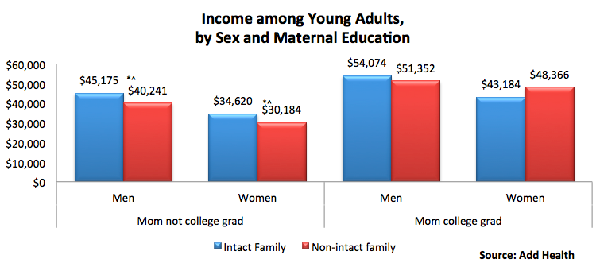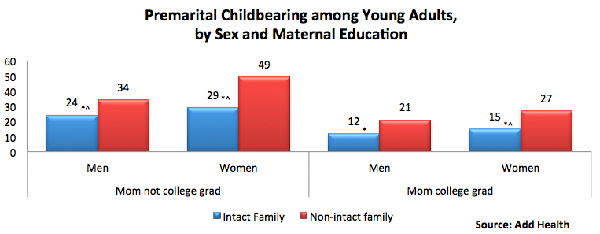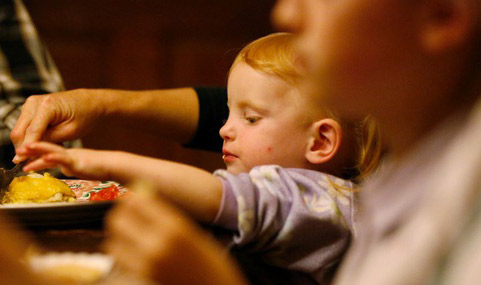
|
Young people from less-privileged homes are more likely to graduate from college and earn more if raised by two married parents. Young adults are 44 percent more likely to have graduated from college if they were raised by their married parents. In fact, the opportunity story begins with our families—in particularly, with our parents. As the Nobel-prize-winning economist James Heckman recently noted, “the family into which a child is born plays a powerful role in determining lifetime opportunities.” Research indicates that adolescents raised in intact, married homes are significantly more likely to succeed educationally and financially. The benefits are greatest for less privileged homes—that is, where their mother did not have a college degree. As the next graph indicates, young men and women who hail from intact, married homes are much more likely to graduate from college. More precisely, young adults are at least 44 percent more likely to have graduated from college if they were raised by their married parents. This is important because a college degree is associated with better work opportunities, lower odds of unemployment, and a substantial wage premium.
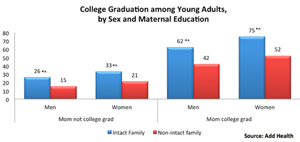 The marriage bump is strongest among families where the parents didn't go to college (the left half of the graph above). Among less-educated families, the children of married parents earn about $4,000 more than their peers from non-intact families, as the next chart shows. The association between intact families and income is not significant for children of college-educated parents.
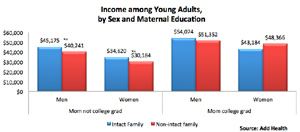 Adolescent family structure also has important implications for family formation among young adults. The next graph indicates that men and women who hail from intact families are about 40 percent less likely to father or bear a child outside of wedlock. This is important because nonmarital childbearing reduces your odds of successfully getting and staying married down the road, maximizing your income, and of providing a stable home to your children.
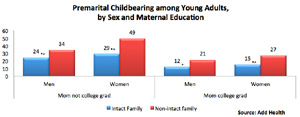 Marriage might even have economic benefits at the citywide level. A recentstudy from Harvard and UC-Berkeley found that the most important predictor of economic mobility was the low share of single moms in a community. Mobility for poor kids was highest in the Salt Lake City metro area, which also happens to have one of the lowest rates of single motherhood of any major metro area in the country. |
查看译文
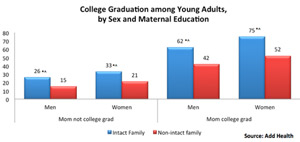
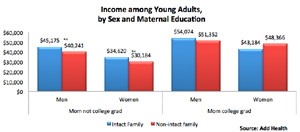
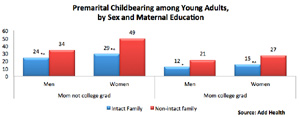
相关阅读 (译者 Lucy鱼er 编辑 丹妮) |
